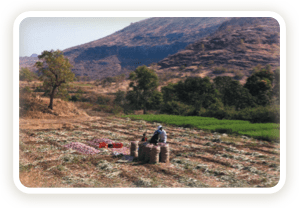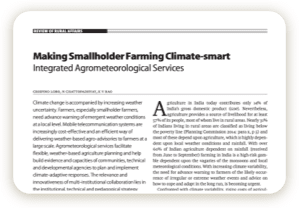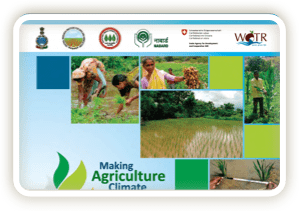Agriculture
Agriculture

Why Agriculture
Land degradation and unsustainable agriculture practices have led to a loss of productivity which is fuelling rural poverty. In fact, agriculture productivity in India is amongst the lowest in the world.
And agriculture in the rainfed parts of the country is far less productive than irrigated areas – with crop yields at a third of the national average. While farmers in irrigated areas earn 60 percent of their income from agriculture, farmers in rainfed areas earn only 20-30 per cent from farm-related activities.
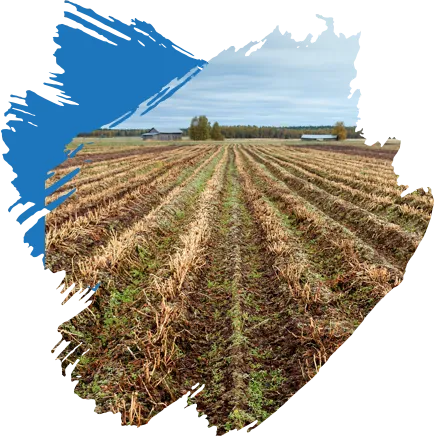
Our Interventions
WOTR enhances farm productivity and profitability; makes farming practices climate resilient and nature friendly; and works with communities to arrest land degradation. Our climate resilient agriculture approach helps farmers mitigate risks of climate change, reduce the cost of cultivation, increase productivity and enhance their adaptive capacities.
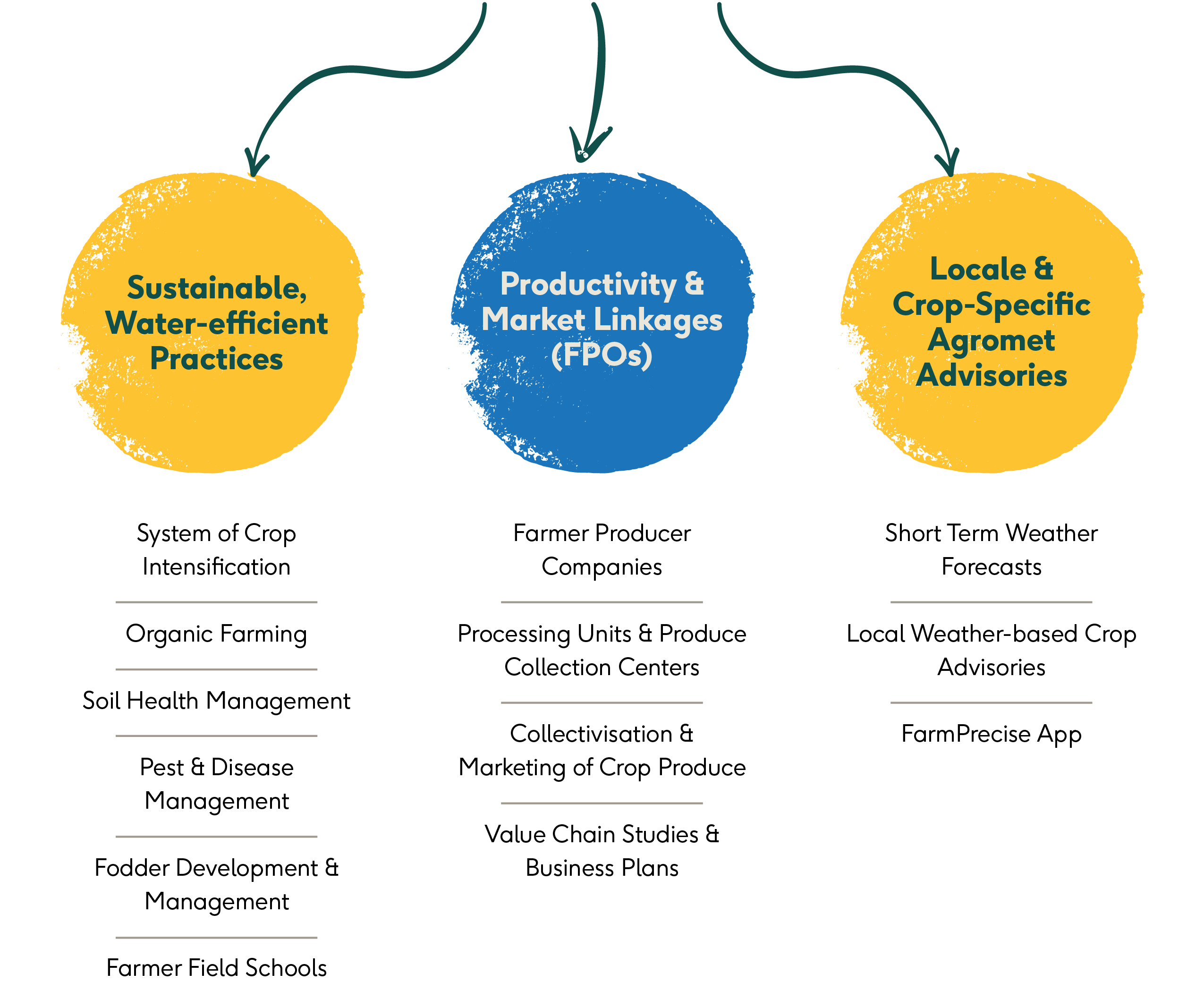
Our Impact
121%
25%
39
15 - 25 %
increase in area
under triple cropping
increase in
horticulture coverage
Farmer Producer Companies established benefitting over 16,000 farmers
Our Impact
121%
25%
increase in area
under triple cropping
increase in
horticulture coverage
39
15 - 25 %
Farmer Producer Companies established benefitting over 16,000 farmers
Program Highlights

Our Achievements

Dr. Punjabrao Deskmukh
Krishi Ratna Award
WOTR was awarded Maharashtra State’s highest award in Agriculture by the Government of Maharashtra in 2010

JEEViKA Excellence in Innovation
WOTR was recognised for excellence in innovation in Agriculture in 2014, by JEEViKA, in collaboration with State Innovation Council, Bihar

India Geospatial
Excellence Award
WOTR was awarded in 2014 by the India Geospatial Forum for the Application of Geospatial Technology in Agriculture

11th mBillionth South Asia Awards
WOTR received a special mention for its FarmPrecise Mobile App in 2020-21

Vasantrao Naik Puraskar 2012
WOTR was recognised for excellent work in rural development
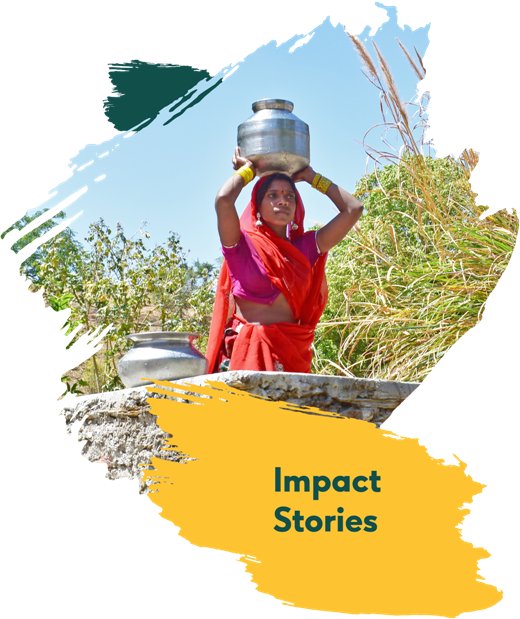
Using the sun to fetch water
The residents of village Modwa were facing a deep water crisis for a long period. The common well in the village, the only source of potable water, was crumbling due to poor maintenance.
In 2016, WOTR used solar pumps to resolve the drinking water issue in this small village of Rajasthan. Today the villagers have clean water supply through taps and they don’t have to worry about fetching water from the well.
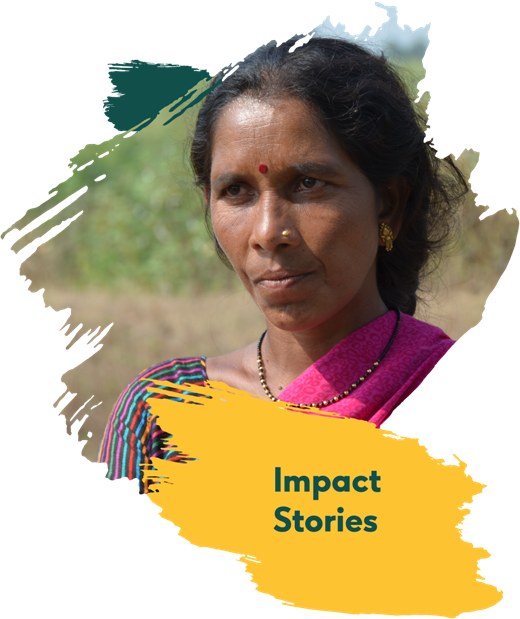
No more financial distress!
Yavatmal district in Maharashtra has several heartbreaking stories of poor agriculture and financial crisis. But Chanda and Ramkala’s story is inspiring to many. After their husbands’ death, both the women were struggling to fend for themselves and take care of their families.
With the support of WOTR’s women empowerment program are successful farmers and are now leading a progressive life. They are now the role models for several women in the community.
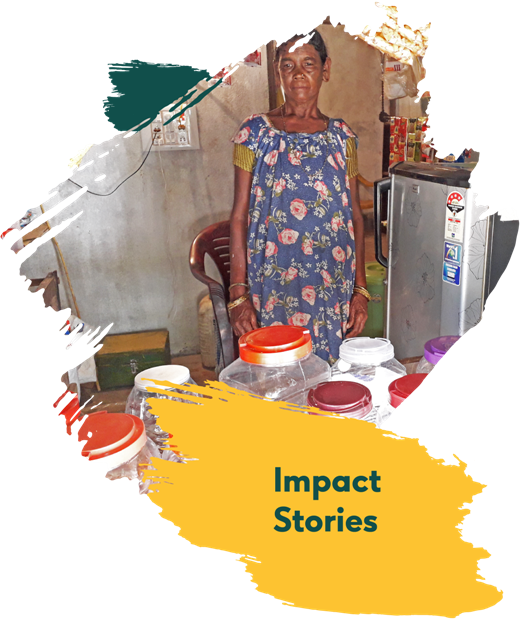
Kamlakola takes charge
The untimely death of her husband, the primary earning member of the family, had left Kamalakola devastated. The responsibility of taking care of the entire family fell on her shoulders. Kamalakola was confused and scared of her future until one of her neighbours told her about WOTR’s Holistic Rural Development Program.
Today she is a confident and financially independent woman earning a daily profit of Rs 200 from her grocery shop. HRDP has changed Kamalakola’s life.
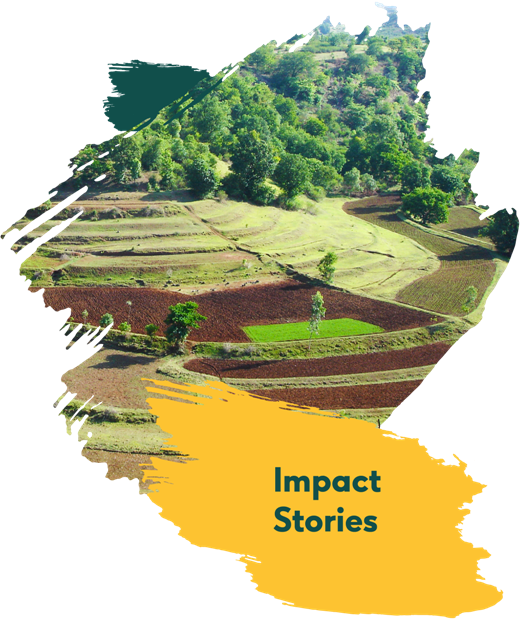
Protecting biodiversity, transforming lives
The parched lands of Purushwadi village were a common sight a few years back. Despite receiving good rainfall, people faced water shortage in other seasons that heavily impacted agriculture and their wellbeing.
But all this changed with WOTR’s Ecosystem-based Adaptation (EbA) approach. By promoting sustainable practices focused on biodiversity conservation, natural resource management and climate change adaptation, the people of Purushwadi are now witnessing a reversal in land degradation. With consistent intervention in the areas, the impact studies have reported a 40% increase in people’s income!
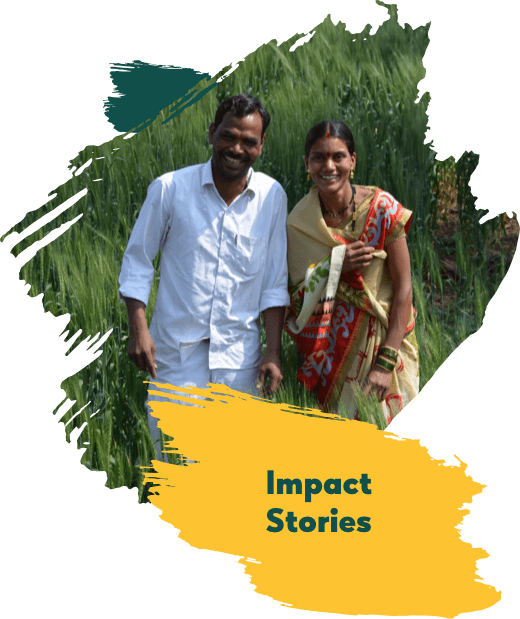
Rise of a changemaker
Santosh Salve saved Rs 25,000 by replacing chemical fertilizer and pesticide with home-made vermicompost, and has restored the nutrients in his soil as a result. All thanks to WOTR who took him through a step-by-step training to start a vermicompost unit and provided him with a starter culture of earthworms. But this was just the beginning and today, thanks to WOTR, Santosh is not only a progressive farmer but a thought leader in his community.

Rise of a changemaker
Santosh Salve saved Rs 25,000 by replacing chemical fertilizer and pesticide with home-made vermicompost, and has restored the nutrients in his soil as a result. All thanks to WOTR who took him through a step-by-step training to start a vermicompost unit and provided him with a starter culture of earthworms. But this was just the beginning and today, thanks to WOTR, Santosh is not only a progressive farmer but a thought leader in his community.
To invest in Climate Resilient Agriculture for rural India, reach out to Nitin Kumbhar at nitin.kumbhar@wotr.org.in

Using the sun to fetch water
The residents of village Modwa were facing a deep water crisis for a long period. The common well in the village, the only source of potable water, was crumbling due to poor maintenance.
In 2016, WOTR used solar pumps to resolve the drinking water issue in this small village of Rajasthan. Today the villagers have clean water supply through taps and they don’t have to worry about fetching water from the well.

No more financial distress!
Yavatmal district in Maharashtra has several heartbreaking stories of poor agriculture and financial crisis. But Chanda and Ramkala’s story is inspiring to many. After their husbands’ death, both the women were struggling to fend for themselves and take care of their families.
With the support of WOTR’s women empowerment program are successful farmers and are now leading a progressive life. They are now the role models for several women in the community.

Kamlakola takes charge
The untimely death of her husband, the primary earning member of the family, had left Kamalakola devastated. The responsibility of taking care of the entire family fell on her shoulders. Kamalakola was confused and scared of her future until one of her neighbours told her about WOTR’s Holistic Rural Development Program.
Today she is a confident and financially independent woman earning a daily profit of Rs 200 from her grocery shop. HRDP has changed Kamalakola’s life.

Protecting biodiversity, transforming lives
The parched lands of Purushwadi village were a common sight a few years back. Despite receiving good rainfall, people faced water shortage in other seasons that heavily impacted agriculture and their wellbeing.
But all this changed with WOTR’s Ecosystem-based Adaptation (EbA) approach. By promoting sustainable practices focused on biodiversity conservation, natural resource management and climate change adaptation, the people of Purushwadi are now witnessing a reversal in land degradation. With consistent intervention in the areas, the impact studies have reported a 40% increase in people’s income!

Rise of a changemaker
Santosh Salve saved Rs 25,000 by replacing chemical fertilizer and pesticide with home-made vermicompost, and has restored the nutrients in his soil as a result. All thanks to WOTR who took him through a step-by-step training to start a vermicompost unit and provided him with a starter culture of earthworms. But this was just the beginning and today, thanks to WOTR, Santosh is not only a progressive farmer but a thought leader in his community.


